Engineering Math Assignment: Cable Optimization & Channel Design
VerifiedAdded on 2023/06/12
|9
|1102
|278
Homework Assignment
AI Summary
This engineering mathematics assignment solution addresses two primary problems: optimizing cable length and analyzing a channel profile. The first problem involves determining the minimum cost of laying a cable connecting an island to an exchange, considering both underwater and land routes. Calculus is used to find the optimal distance 'x' that minimizes the total cost. The second problem analyzes a channel profile, using Desmos to plot turning points and integral calculus to calculate the channel's length. It further explores the channel's geometry, determining the depth and safe flow capacity, and estimating the cost of lining material based on area calculations. The solution demonstrates a comprehensive application of mathematical principles to solve practical engineering problems.
1 out of 9
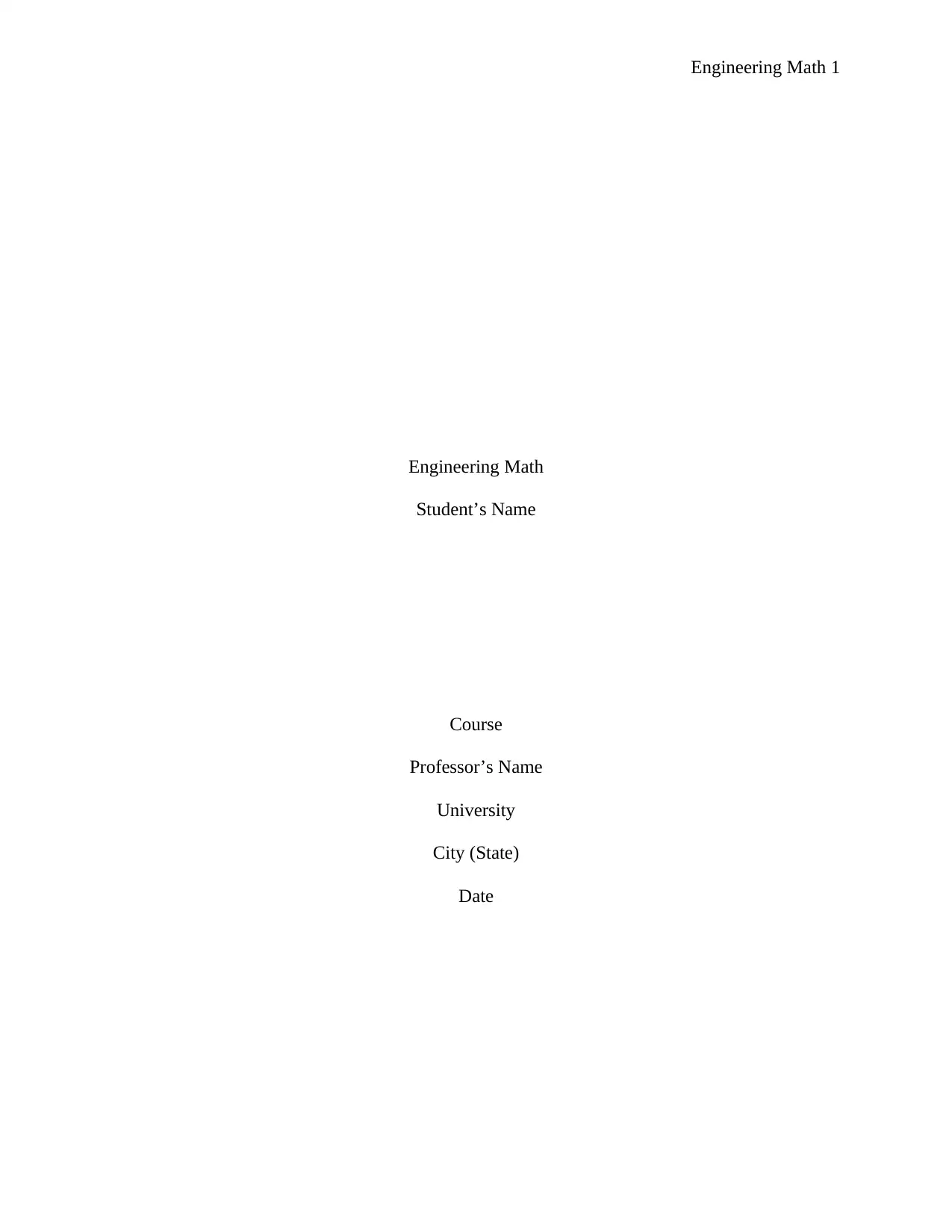
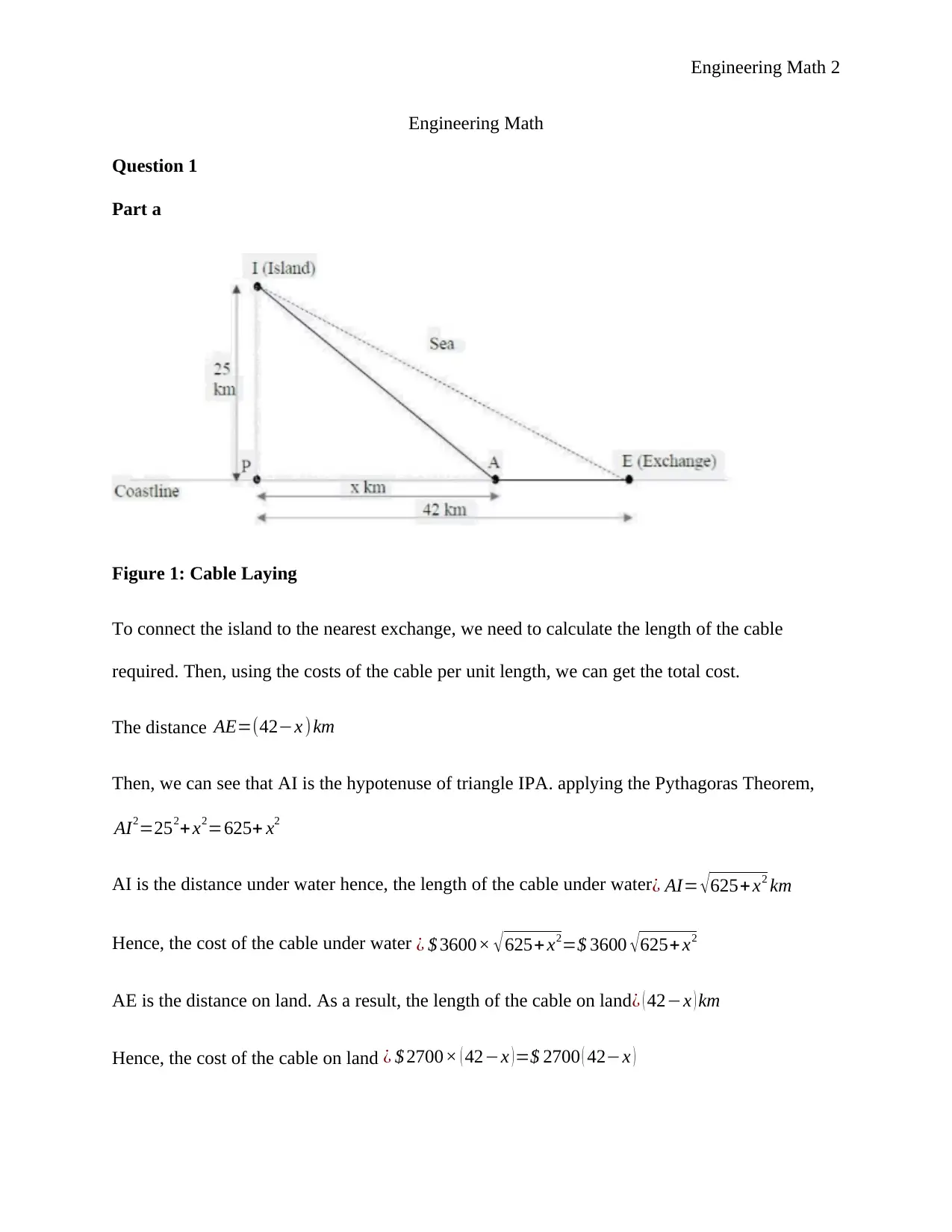
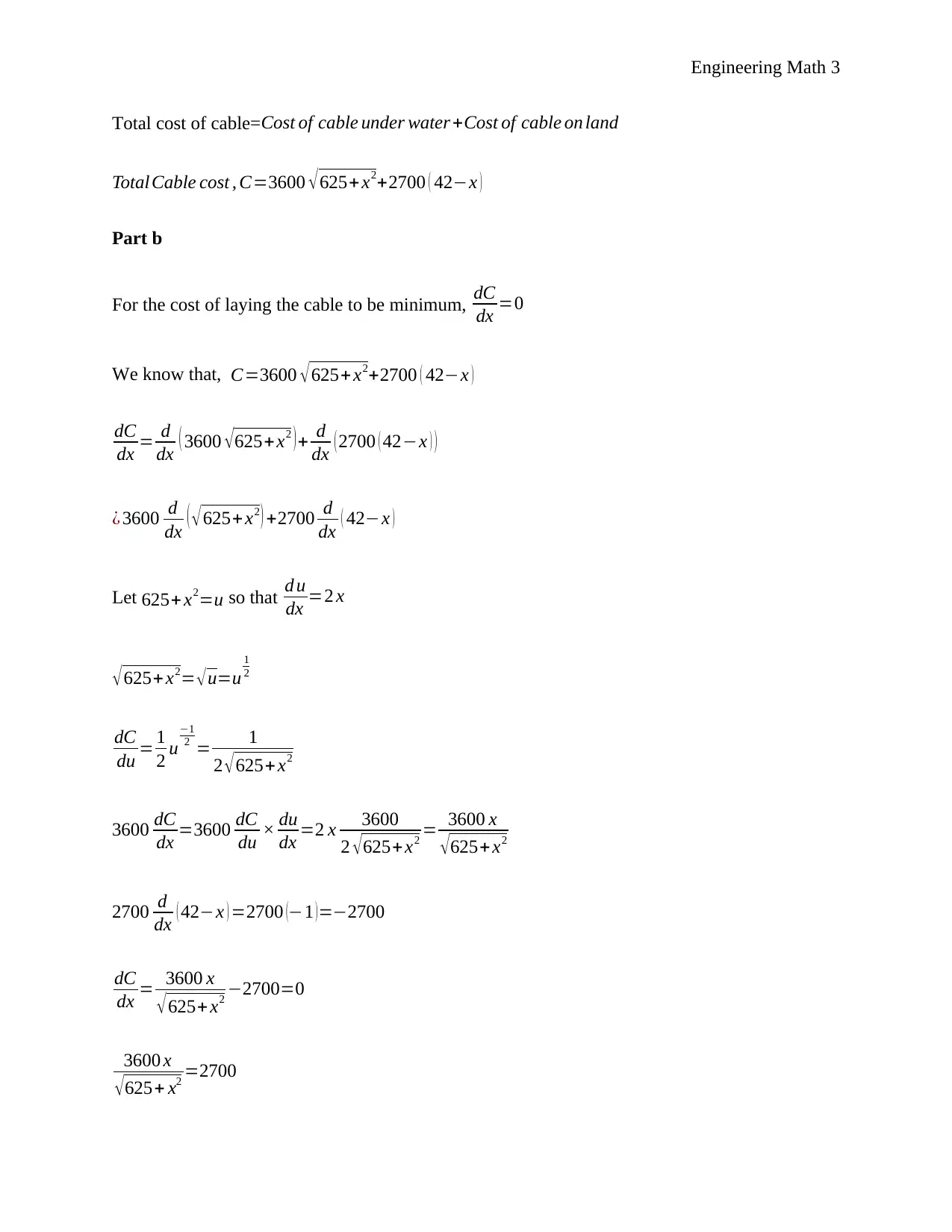

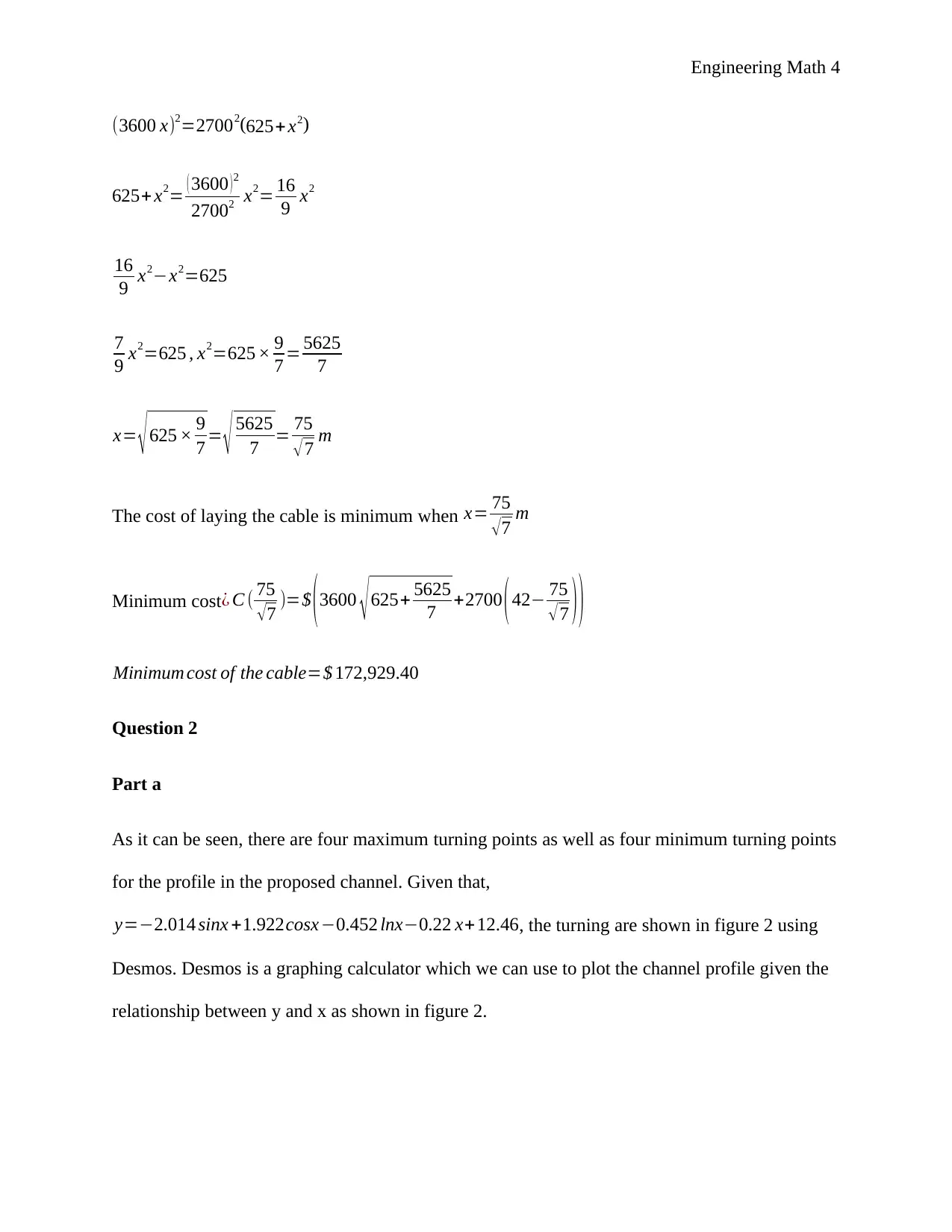
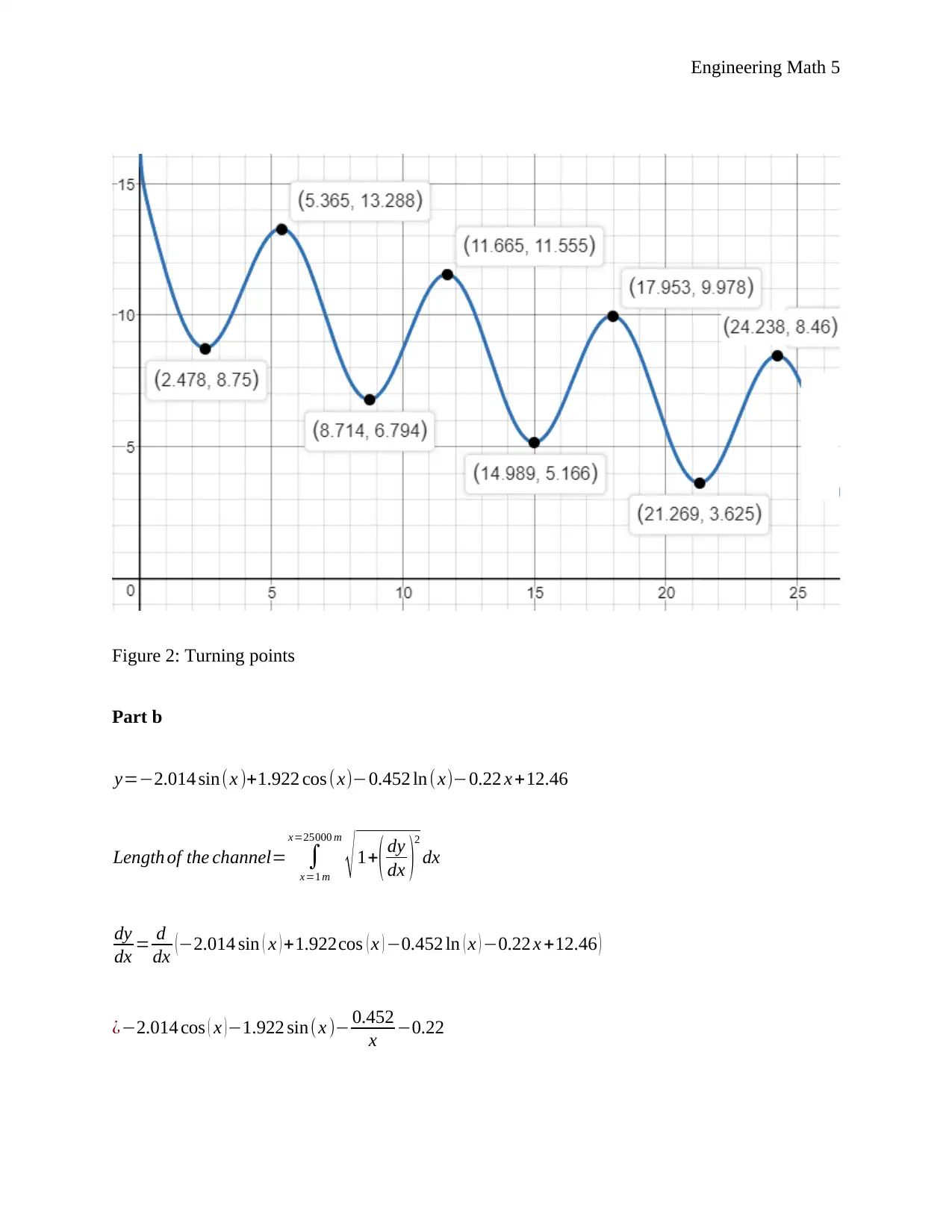
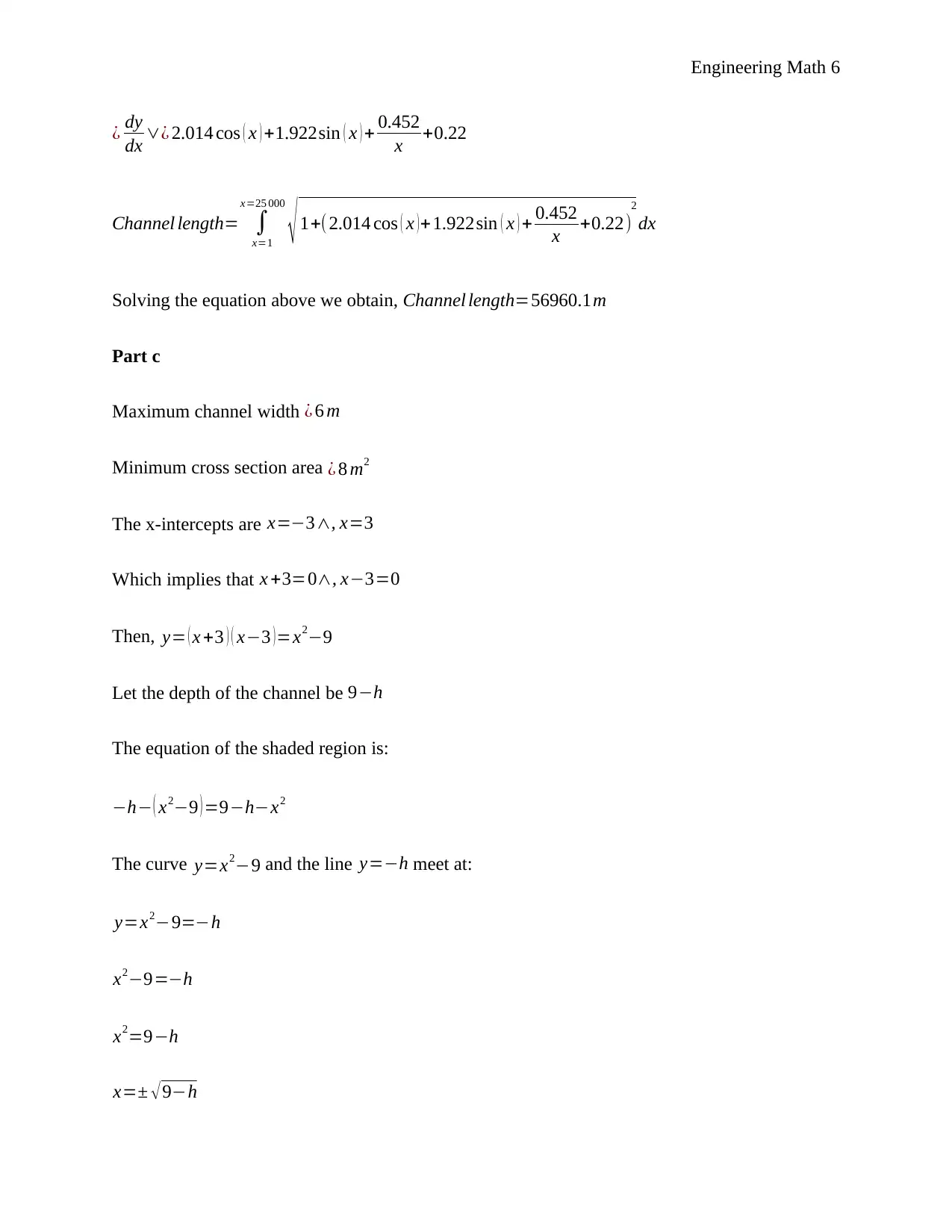
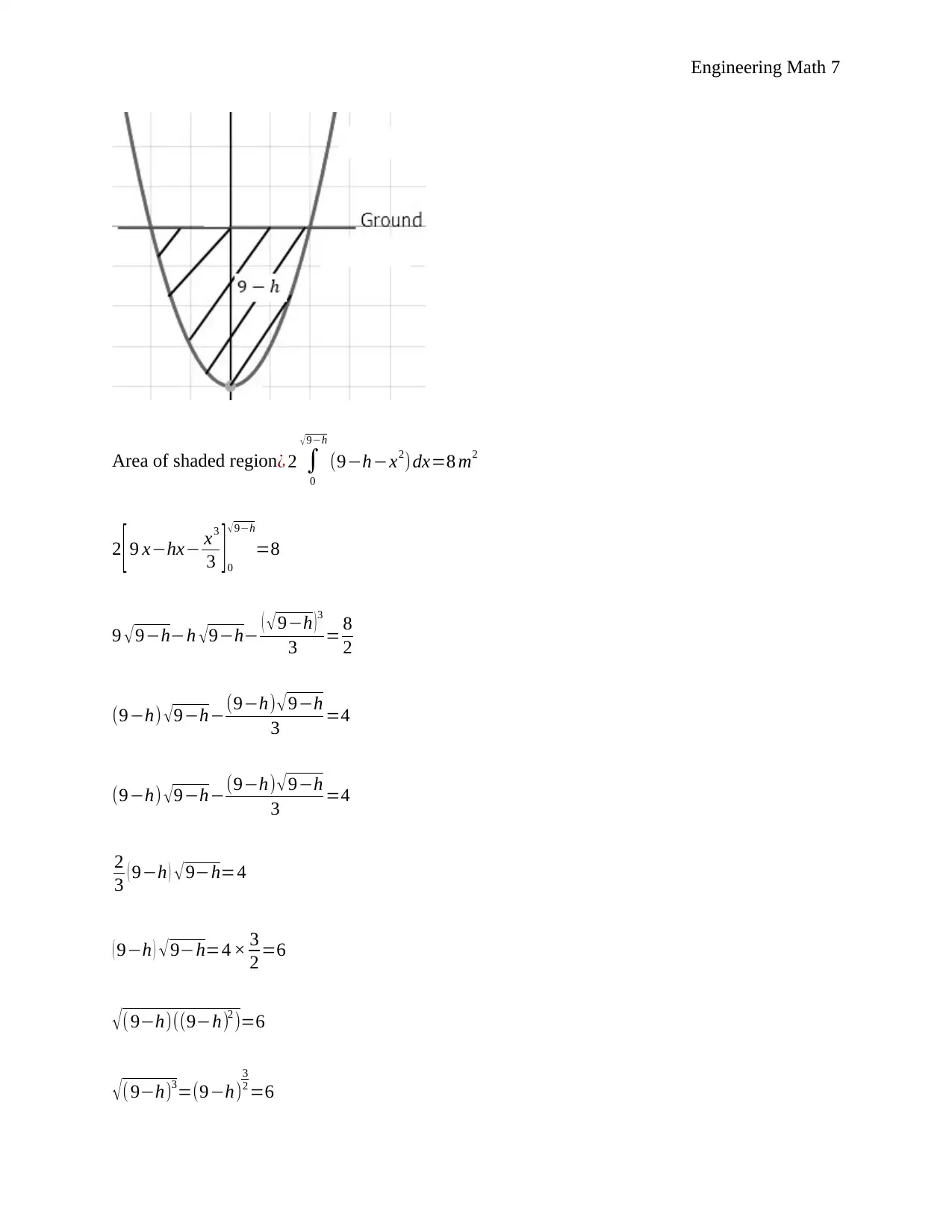
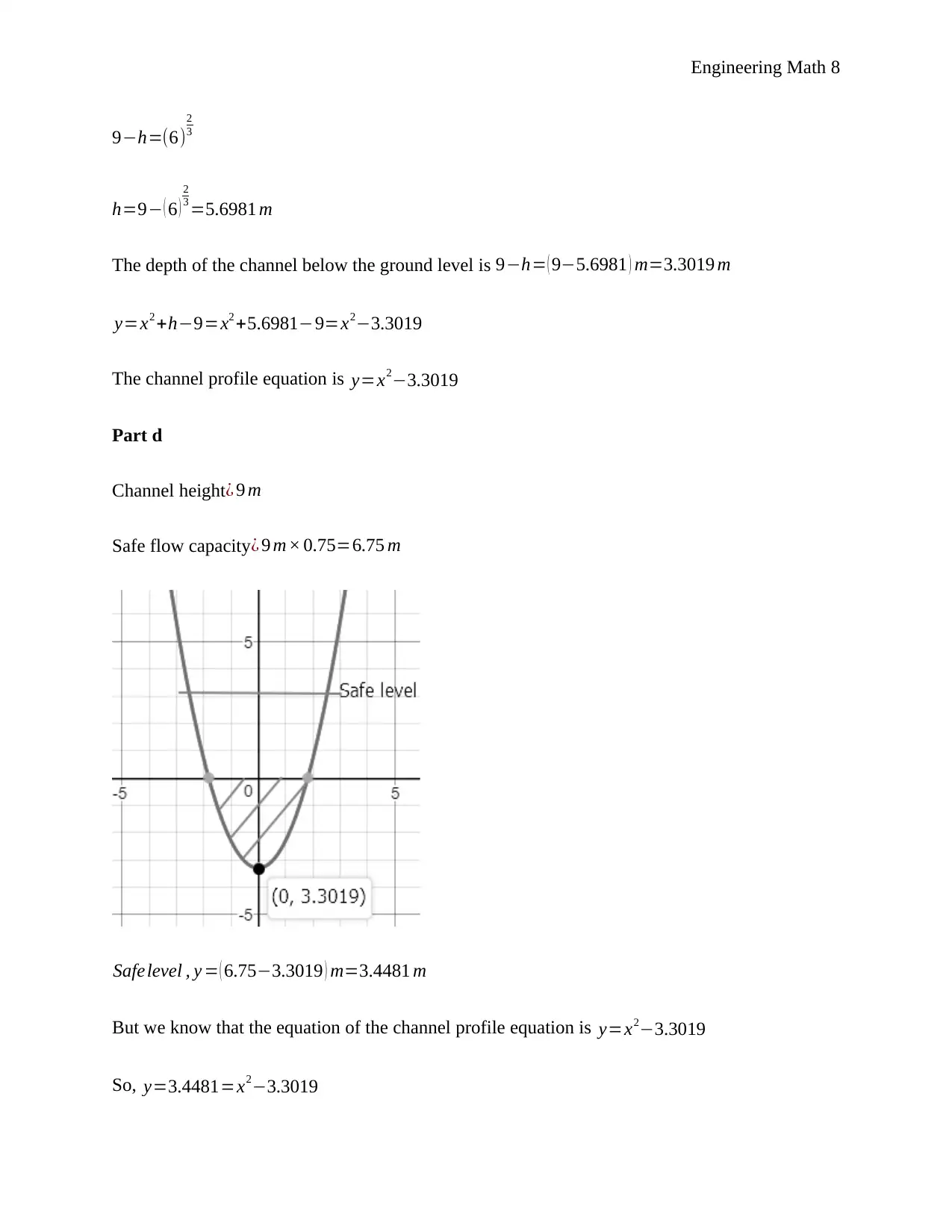
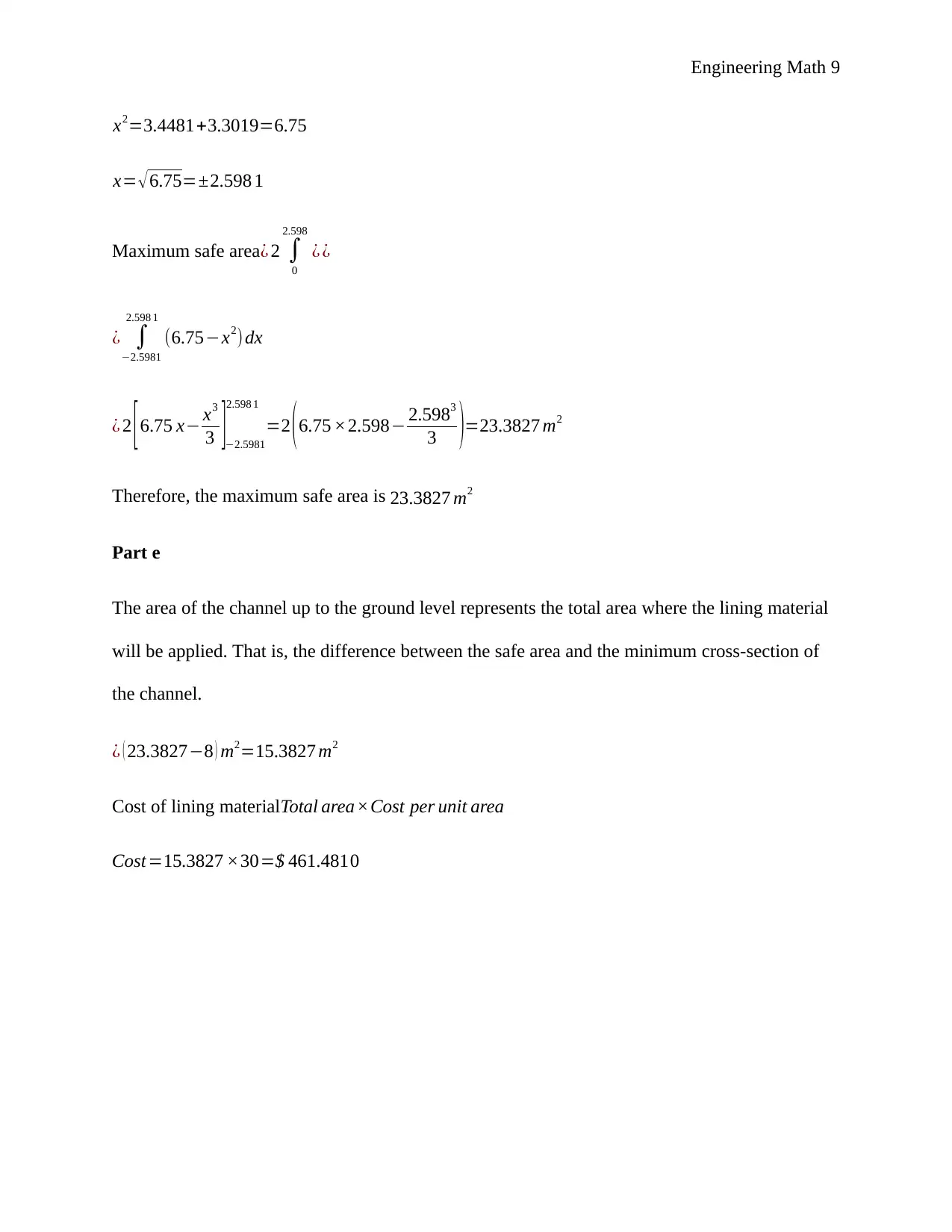


![[object Object]](/_next/static/media/star-bottom.7253800d.svg)